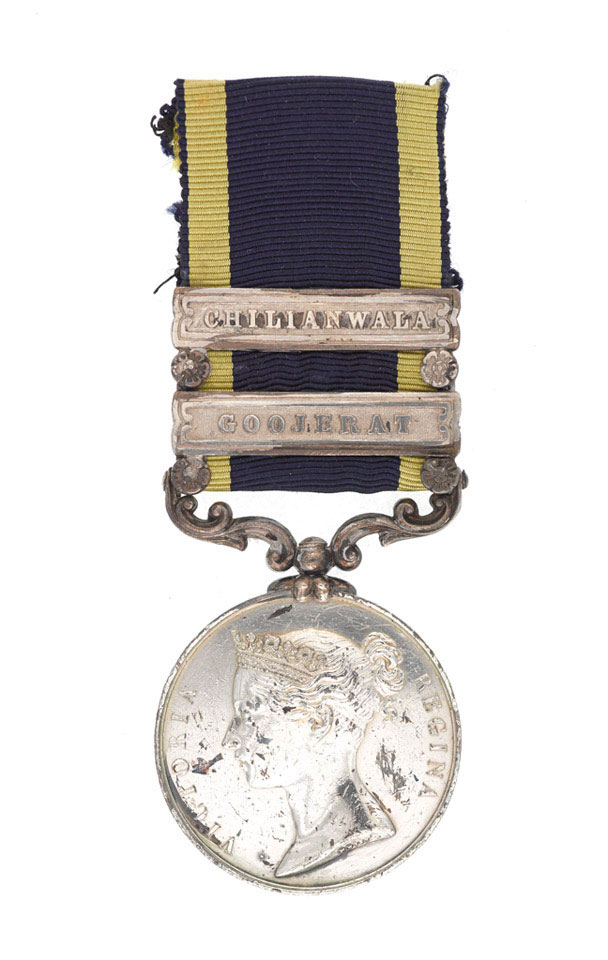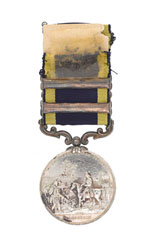
Online Collection
« Prev - 1 of 1 results - Next »
Punjab Campaign Medal 1848-49
Campaign medal with clasps, 'Chilianwala' and 'Goojerat', awarded to Viscount Lord Gough, Army Staff.
Circular silver medal designed by William Wyon (1792-1851), with on the obverse, Queen Victoria wearing a diadem, with the inscription, 'Victoria Regina'; on the reverse, a scene showing the surrender of Sikh forces to Sir Walter Gilbert (1785-1853), with the date, '1849', in Roman numerals, and the inscription, 'To the Army of the Punjab'. The medal is suspended from a dark blue ribbon with two yellow vertical stripes, with silver clasps, 'Chilianwala' and 'Goojerat'.
This medal was awarded to the officers and men of the British Army and Bengal Army who served in the Punjab between 7 September 1848 and 14 March 1849. The medal also bears the 2nd Sikh War clasps for the Battle of Chilianwala (13 January 1849) and the Battle of Gujerat (21 February 1849).
In 1848, two British officials sent to take control of the Sikh province of Multan were murdered, and the whole of the Punjab rose in revolt). After two minor actions Sir Hugh Gough finally encountered the main Sikh army under Sher Singh at Chilianwala (13 January 1849). The Sikhs eventually withdrew under cover of darkness, taking with them three captured British colours. Although the British were left in possession of the battlefield, Chilianwala could scarcely be called a victory. Gough's force had incurred over 2,300 casualties, including over 1,000 British.
British public opinion was horrified at the scale of casualties, and pressure grew for Gough to be replaced. Before this could happen, the final action of the war was fought at Gujerat, about 120 km. north of Lahore, on 21 February 1849. Gough had by now assembled an army of some 24,000 with which to attack a Sikh force estimated at 60,000. After an artillery duel lasting some two and a half hours, Gough ordered his infantry forward in a general advance. Although Sikh resistance was fierce, they were eventually forced to give ground, and the retreat soon became a rout. On 14 March, the remains of the Sikh army surrendered at Rawalpindi. The Punjab was annexed to British India, and the Sikh state lost its independence.
From a collection of medals belonging to 1st Viscount Hugh Gough (1779-1869).
NAM Accession Number
NAM. 1966-10-27-4
Copyright/Ownership
National Army Museum Copyright
Location
National Army Museum, Study collection
Object URL
https://collection.nam.ac.uk/detail.php?acc=1966-10-27-4


